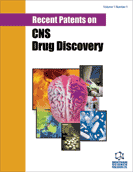Abstract
Aging is characterized by a progressive deterioration of physiological functions and metabolic processes. Healthy aging remains one of the ideals of modern society. In aging and in diseases associated with the elderly, such as Alzheimers or Parkinsons, the loss of cells in vital structures or organs may be related to several factors, among which the production of reactive oxygen species (ROS) by mitochondria is a common denominator, one that leads to DNA damage, apoptosis and death. Although a diet rich in antioxidants seems to offer hope in delaying the onset of unhealthy disorders that accompany aging, no clinical treatment as such has yet been developed and anti-aging drugs are still unavailable. It is well established that reducing food intake (caloric restriction) extends the life-span in a wide range of species. The protein implicated in this protective process is the silent information regulator 2 (SIR2, SIRT1 in mammals), an enzyme that belongs to a nicotinamide adenine dinucleotide (NAD)+-dependent protein deacetylases. SIRs regulate gene silencing, DNA repair, rDNA recombination, and ageing, apart from regulating programmed cell death. In this context, increasing SIRT1 has been found to protect cells against amyloid-beta-induced ROS production and DNA damage, thereby reducing apoptotic death in vitro. Moreover, it has been demonstrated that Alzheimers and Huntingtons disease neurons are rescued by the over-expression of SIRT1, induced by either caloric restriction or administration of resveratrol, a potential activator of this enzyme. The therapeutic use of resveratrol (a polyphenol present in red wines) and other related compounds, which utilize SIRT1 pathway modulators, in treating aging-related brain disorders will be discussed in this review. Provided herein are novel new compound related with resveratrol or sirtinol that are able to modulate sirtuin activity that will be tested to treat and/or prevent a wide variety of diseases including, disorders related to aging or neurodegenerative diseases,
Keywords: Ageing, neurodegenerative diseases, deacetylases, polyphenols
 46
46





















